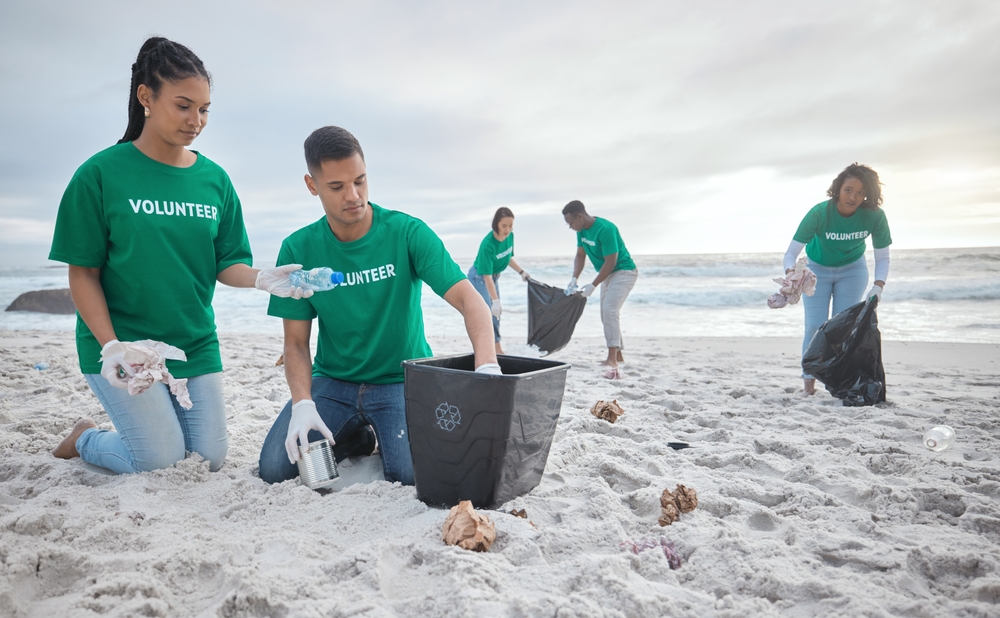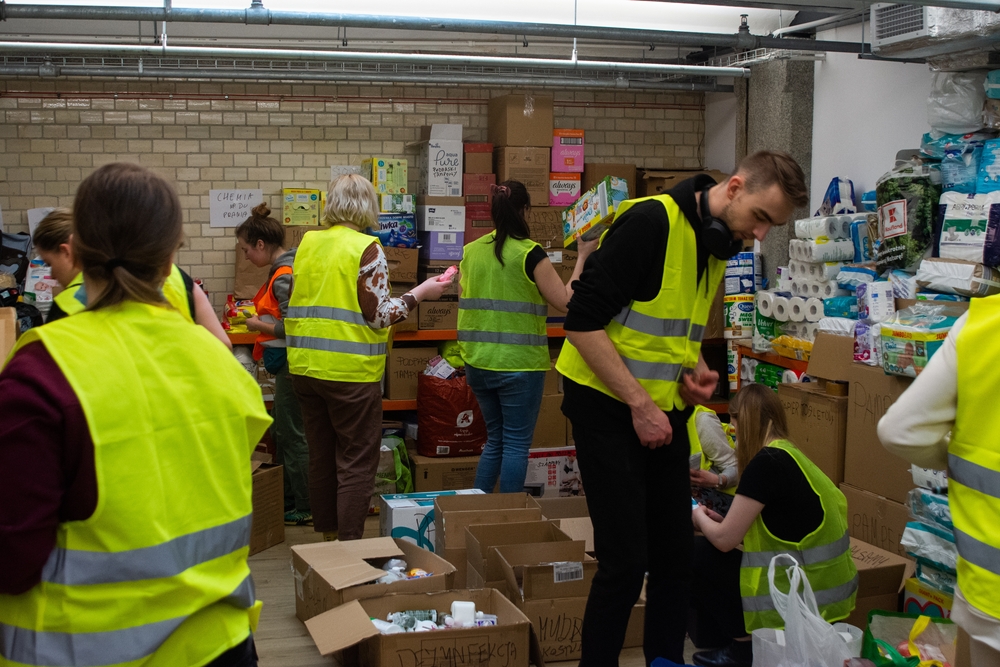How to Plan an Ethical Volunteer Trip

Ever wondered if your volunteer trip is genuinely helping the community you aim to support? It’s more crucial than you might think to ensure your efforts are both ethical and sustainable. While planning a volunteer trip is an incredible way to give back, it’s easy to unintentionally cause harm if not done correctly. Imagine working on a project that disintegrates the moment you leave, leaving the community at a disadvantage. Studies have shown that poorly planned volunteer initiatives can actually undermine local economies and foster dependency, rather than empowerment. In this guide, I’ll share steps on how to make sure your volunteer trip genuinely benefits everyone involved. By asking the right questions and choosing the right organization, you can create a positive, lasting impact that aligns with your skills and values. Curious about how to make this happen? Stick around as we explore how to ensure your work is truly meaningful and sustainable.
How to Plan an Ethical Volunteer Trip

Planning a volunteer trip is an amazing way to give back, but it’s essential to do it right. Ever wondered how to make sure your trip really helps and doesn’t harm? Let’s dig into how to organize an ethical volunteer trip that truly makes a difference.
Identify the Problems
Volunteering abroad can sometimes do more harm than good if not done right. Communities may feel exploited, and volunteer work might not be sustainable. Imagine contributing to a project that ends as soon as you leave, leaving the community in limbo.
Studies show that poorly planned volunteer activities can undermine local economies and create dependency rather than empowerment. Read more here.
Promise of a Solution
In this blog, we’ll explore steps to make sure your volunteer trip benefits everyone involved. By choosing the right organization and preparing effectively, you can have a positive and lasting impact.
Key Questions to Ask Yourself
- Why do I want to volunteer?
- What skills can I offer?
- How can I ensure my work will be sustainable?
These questions will guide you in making informed decisions for your volunteer trip. They’ll help you narrow down opportunities that align with your strengths and values.
What You’ll Learn Next
Curious about how to find the right volunteer organization that aligns with your values? Want to understand more about assessing your skills and setting realistic expectations? Don’t miss out on the next part where we break down how to define your motivation and ensure you’re volunteering for the right reasons. Stay tuned!
So you’re excited about planning a volunteer trip but unsure where to start? Understanding your motivation is crucial to ensuring your efforts are meaningful and fulfilling, both for you and the community you aim to assist.
Understand Your Motivation

Before you jump into the details of booking flights and vaccinations, it’s essential to take a step back and ask yourself: Why do you want to volunteer? Your motivations will serve as the foundation for the entire trip.
Exploring Your Goals
Take a moment to clearly define your purpose. Are you looking to gain new skills, or perhaps you’re eager to make a tangible difference in a community? Knowing your goals helps you focus on choosing the right opportunity for yourself.
“The best way to find yourself is to lose yourself in the service of others.” – Mahatma Gandhi
This quote really resonates with many volunteers. Is your goal to connect deeply with others, or are you seeking a personal transformation? Either way, getting clear on your purpose can steer your choices in the right direction.
Assessing Your Skills
Knowing your strengths ensures you pick a role where you can contribute effectively. Are you a great teacher? Enjoy hands-on work? Maybe you’re skilled in healthcare? Matching your skills to the needs of the community can maximize your impact.
- If you’re great with children, consider education-based projects.
- Love building? Construction projects might be your thing.
- Skilled in healthcare? Medical volunteer projects can always use more hands.
The key here is to play to your strengths and ensure your skills align with the volunteer role you’re considering.
Setting Realistic Expectations
Let’s be real; volunteering abroad is not a walk in the park. Prepare yourself for cultural differences and potential challenges. Have an open mind and be ready to adapt.
Consider these tips:
- Research local customs and traditions beforehand.
- Learn some basic phrases in the local language.
- Be prepared to face living conditions different from what you’re used to.
Setting realistic expectations ensures you don’t feel overwhelmed and helps you integrate better into the local community.
Feeling motivated yet? Understanding your motivation is just the first step. How do you ensure that you pick the right organization that aligns with these goals? Stay tuned because we’re diving into that next.
Choose the Right Organization

When it comes to planning an ethical volunteer trip, one of the most critical steps is choosing the right organization. This decision can make or break your entire experience and impact on the local community. Let’s look at some key factors to help you make an informed choice.
Research Thoroughly
Before committing to any organization, invest time into researching. Check various platforms and read reviews from past volunteers. Here’s how to dig deeper:
- Visit their website and understand their mission.
- Look for third-party reviews on platforms like Charity Navigator.
- Search for blog posts or articles from past volunteers.
Real-life example: A friend volunteered in Nepal and found her program through a highly-rated organization on Charity Navigator. Her experience was life-changing, and the community truly benefitted from her work.
Verify Their Impact
It’s crucial to ensure that the organization has a tangible positive impact. Ask the following questions to verify their claims:
- How do they measure the success of their programs?
- Can they provide data or reports on their impact?
- Do they work with local leaders and communities?
A study by Columbia University found that organizations collaborating with local leaders tend to have more sustainable outcomes. When you see that your chosen organization is making real change, it’s easier to commit wholeheartedly.
Avoid Scams and Unethical Practices
The last thing you want is to be caught in a scam, right? Unfortunately, not all volunteer programs are created equal. Here’s how to spot the red flags:
- If it seems too good to be true, it probably is.
- The organization should be transparent about where your fees are going.
- Avoid programs that focus more on profits than on making a meaningful impact.
Here’s a heartbreaking story: One traveler signed up for a volunteer program in Africa that turned out to be a scam. The organization pocketed the fees and provided minimal support to the local community. Knowing what to watch out for can save you from being duped.
“The greatest threat to our planet is the belief that someone else will save it.” – Robert Swan
Feeling confident about picking the right organization is just step one. Beyond that, you need to expertly plan the logistical details to make sure everything runs smoothly. Ready to dive into the nuts and bolts of trip planning? We’ll cover all of that and more in the next section! Stay tuned!
Plan Your Trip Details

Organizing your volunteer trip details is crucial to avoid any last-minute stress. Let’s ensure everything is in order, so you can focus on the incredible experience ahead.
Book Flights and Accommodation Early
Booking your flights and accommodation well in advance can save you a lot of trouble—and money. Here are some tips:
- Look for Deals: Websites like Kayak and Skyscanner can help you find the best deals on flights.
- Stay Close: Choose lodging close to your volunteer site to minimize commutes. Many volunteers recommend homestays for a more immersive experience.
- Flexibility Pays Off: Being flexible with your travel dates can often result in lower prices. Use tools like Google Flights to see fare trends over different dates.
A study by CheapAir.com found that the best time to book flights is around 70 days before departure. Don’t wait until the last minute!
Get Necessary Vaccinations and Documents
Health and documentation are non-negotiable aspects of your trip. Here’s what you need to keep in mind:
- Vaccinations: Check the CDC’s traveler’s health page to know what vaccinations are required for your destination. Some vaccines might need to be administered weeks in advance.
- Travel Insurance: Make sure you have comprehensive travel insurance that covers medical emergencies and trip cancellations. Insurers like World Nomads offer plans tailored for travelers and volunteers.
- Required Permits: Research if you need any specific visas or permits to volunteer in the country you’re visiting. Websites like VisaHQ can guide you through the process.
“An ounce of prevention is worth a pound of cure.” – Benjamin Franklin
Prepare for Cultural Integration
Being culturally sensitive can make your volunteer trip much more fulfilling. Here’s how you can prepare:
- Learn Basic Phrases: Knowing simple greetings and phrases in the local language will go a long way in building connections. Apps like Duolingo make it easy and fun.
- Study Local Customs: Spend some time researching local traditions and customs. For example, in many Asian countries, it’s important to remove your shoes before entering someone’s home.
- Respect Dress Codes: Understanding and respecting local dress codes can help you blend in and show respect. If you’re unsure, err on the side of modesty.
Imagine walking into a local market, greeting the vendors in their native language, and genuinely connecting with the community. That’s the kind of enriching experience preparation can get you.
Getting these logistical details right will set the stage for an incredible volunteer trip. But what about funding and budgeting for your adventure? How can you finance your trip without breaking the bank? Let’s explore that next!
Funding and Budgeting

Figuring out how to pay for your volunteer trip can be overwhelming, but with the right approach, it’s totally manageable. Let’s look into some creative ways to secure funding and budget wisely.
Fundraising Ideas
One of the most effective ways to gather funds is through fundraising. Here are some tried-and-true ideas to get you started:
- Online Crowdfunding: Platforms like GoFundMe or Kickstarter allow you to share your story and collect donations from friends, family, and even strangers who support your cause.
- Host Events: Organize a community event like a bake sale, car wash, or charity run. These events not only raise funds but also spread awareness about your mission.
- Social Media Campaigns: Use your social media presence to reach out to your network. Share photos, videos, and updates about your trip to inspire others to contribute.
Creating a Budget Plan
Creating a budget plan is essential to manage your finances effectively. Start by listing all potential expenses:
- Travel Costs: This includes flights, local transportation, and accommodations.
- Living Expenses: Think about daily meals, water, and any other essentials you’ll need.
- Medical Expenses: Vaccinations, travel insurance, and medical supplies.
- Miscellaneous Costs: Souvenirs, local activities, and unforeseen expenses.
Make Best Use of Available Resources
Managing your money efficiently is crucial. Here are some tips to stretch every dollar:
- Use Budgeting Tools: Apps like Mint or YNAB (You Need a Budget) can help you keep track of your spending and stay within your budget.
- Take Advantage of Discounts: Look for student discounts or group rates when booking flights and accommodations.
- Volunteer Programs: Some organizations offer free room and board in exchange for your work. Research these opportunities thoroughly.
For more comprehensive advice on ethical volunteering, check out these useful resources:
Now that we’ve covered funding and budgeting, I bet you’re ready to see how all this planning pays off in the long run. How exactly can you ensure that your good intentions lead to a sustainable and lasting impact? Stick around for the next part where we’ll explore how to make a long-term difference.
Making a Long-Term Impact

Now that you’ve got everything set for your volunteer trip, it’s time to focus on making a long-term impact. Short-term volunteering should be just the beginning of a sustained relationship with the community you aim to help. Here’s how you can ensure your impact lasts well beyond your trip.
Stay Connected
After your volunteer trip, keeping the connection alive with the community is crucial. Regular updates and check-ins can go a long way in showing your continued support and interest. Use social media, emails, or even occasional video calls. For instance, a volunteer I know revisits the children’s center she helped build every year. The kids look forward to her visits, and she’s able to see firsthand the progress being made.
Sharing your journey can inspire others to embark on a similar path. Write about your experiences, the lessons you learned, and how it changed you. Use platforms like your personal blog, social media, or even community gatherings to talk about your trip. For example, a teacher who volunteered in Africa created a series of YouTube videos documenting her experiences, which have inspired hundreds of others to sign up for volunteer programs.
Beyond Volunteering

Think about ways to support the community even after you’ve returned home. This could be through fundraising, advocating, or even sending supplies. There are many ways to continue contributing:
- Fundraising: Organize events or campaigns to raise money for community projects.
- Advocacy: Use your voice to raise awareness about the issues the community faces.
- Supplies: Collect and send necessary materials that can aid ongoing projects.
A practical example is an ex-volunteer who started a small-scale crowdfunding campaign that ended up financing the renovation of a local school building. Such actions create a ripple effect, often achieving more than what one might manage during the actual trip.
Conclusion: Making a Difference
Ethical volunteering is all about making thoughtful, informed decisions that lead to sustainable and positive outcomes. By staying connected, sharing your experience, and finding ways to contribute beyond your trip, you can ensure your good intentions translate into real, lasting impact. Here’s to making the world a better place, one trip at a time. Happy travels!